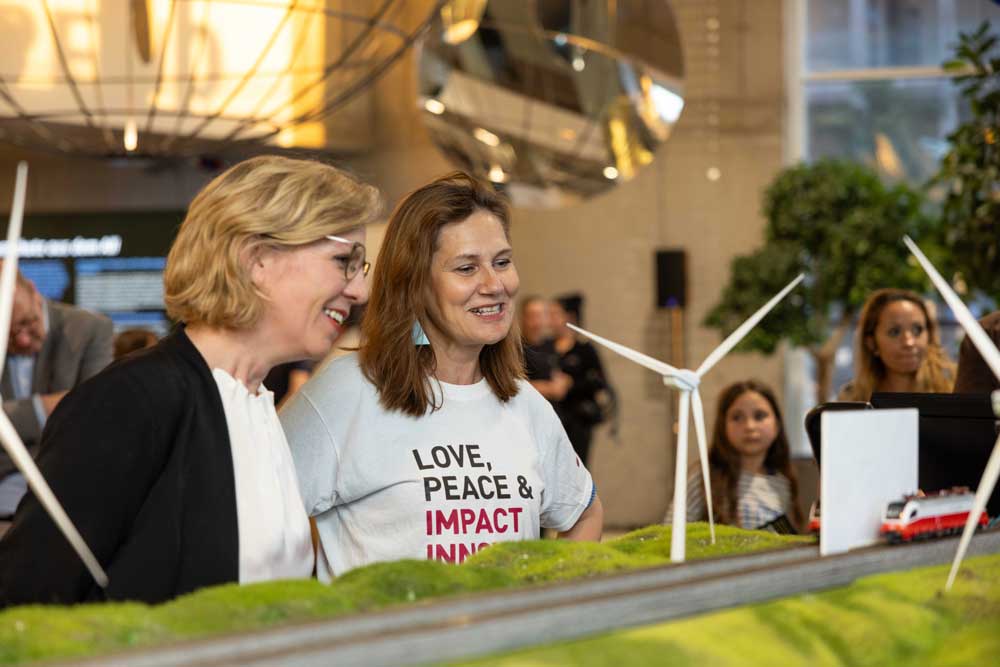May 2024
Text: Rebecca Angerer; Fotos: Konrad Gerger

In May 2024 we had the pleasure of working with the Austrian Research Promotion Agency (Österreichische Forschungsförderungsgesellschaft FFG) on a unique project: We designed and built an exhibition stand element for the Long Night of Research. The underlying idea was to show visitors in a playful way how much work it takes to generate electricity yourself. A model train seemed to be the ideal tool to illustrate this: visitors could power it by a bicycle generator. We increased the excitement by starting a competition with two model trains racing against one another.
Our goal was to create an overall experience for the participants while at the same time presenting the FFG. We delivered this idea with a fun twist: The model train not only operated on a simple route, but crossed hills and meadows, a body of water and stopped in a city. Along the way, it crossed some of FFG’s research areas, including wind and hydro power as well a mobility. The train tracks led the FFG train, propelled by the participants, into the future – where we explored the features and elements of the city of the future.
The cyclists could monitor the challenge on a screen, and they could track how many watts they had cycled, and the time spent cycling. Their score war put into a leaderboard, encouraging visitors to repeat the challenge.
We made a point of making the attraction available to all ages: The bikes could be adjusted to the size and the fitness level of the users, with the option to adjust electric power levels. As a final touch, we added a painting table to the train. Everyone could make and paint their own paper train. The paper cover could be put over the model train, so participants could race with their own train and keep the cover as a souvenir.
We designed, planned and implemented the project in just under nine weeks together with our partners Rebecca and Anna Sternberg, Vienom OG and Dieter Mackinger (X-ACT events).












